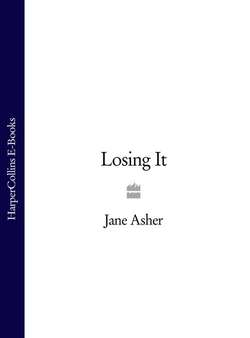Читать книгу Losing It - Jane Asher - Страница 20
Charlie
ОглавлениеIt was to be another couple of weeks before it happened – before it all changed, I mean.
I was in court – a long and rather dull case that had been dragging on for days. I was examining my own client: a woman who, if I am honest with myself, I knew quite clearly deserved never to see her children again. I was attempting to secure her some sort of limited access.
I was trying to convince the judge that the woman’s prolonged absences abroad away from her children had been justified by the demands of her work or some such, and, as I questioned her, I had been watching her elegant, manicured hand playing with her expensively streaked hair, forcing her to tilt her head as she peered at me resignedly from behind the shining blonde curtain.
I was far from confident that my client, vague and uninterested as she had appeared to be in our briefings, would remember our policy of explaining by her work schedule the weeks and months at a time that she had spent away from her family over the course of the previous years, and I had been irritated by her lack of cooperation in a process that I myself was not at all sure was valid. As I waited for her to answer, her head still now, her hand fiddling with a string of pearls round her neck, I found myself watching the way the ring she was wearing glittered as it caught the light. It reminded me of something, and gave me an uneasy feeling I couldn’t fathom. As she began to speak – detailing some justification that we had conjured up between us for her extensive holidays – she thrust her hand back into the blonde tresses, arranging and rearranging the fall of hair, clearly a nervous habit that was helping her to cope with the stress of her court appearance. The ring moved in and out, twinkling sporadically and mesmerically. What memory, lurking at the back of my mind, was being triggered by the sight of this gold and sapphire piece of jewellery?
It was, of course, Stacey’s ring. Remarkable how the mind can make connections without letting you know, how it can carry on a private conversation between memory and the subconscious until the nagging irritation of the discussion can no longer be ignored. That I should be surreptitiously reminded of a shop girl’s cheap bit of vulgar jewellery by the obviously expensive sapphire ring of the woman I was examining in court was strange enough; what was inexplicable was that the connection should be so disturbing. What should have merely caused me to smile in recognition made me frown in dread.
I pictured Stacey’s hand, and the ring half buried in the flesh. And it was then – I’m sure of it – exactly then, as I recalled the soft, white skin and the twinkling of those cheap little blue stones against the ludicrous rococo swirls of gold, that I knew everything had changed. Gone in one microsecond of terrible knowledge was all vestige of the so-called fatherly feelings that I’d professed for the girl. Gone, to be replaced in the same instant by a searing stab of desire so intense that I had to dip my head in sudden dizziness for fear of fainting. The shock was total. How could I possibly trust the bizarre message that every nerve in my brain and body was screaming at me: that a girl whom I had met – no, not even met, encountered at most – a mere dozen or so times, and with whom I had had the briefest of conversations, was affecting my emotions so suddenly and drastically? It was a moment that needs poetry or music to attempt a description – no mere words can convey that kind of emotional attack. Not because of its beauty – far from it: the realisation was closer to horror than to delight – but because the force of such a moment, that takes one’s heart in its grip and squeezes it until life itself is threatened, is beyond account.
